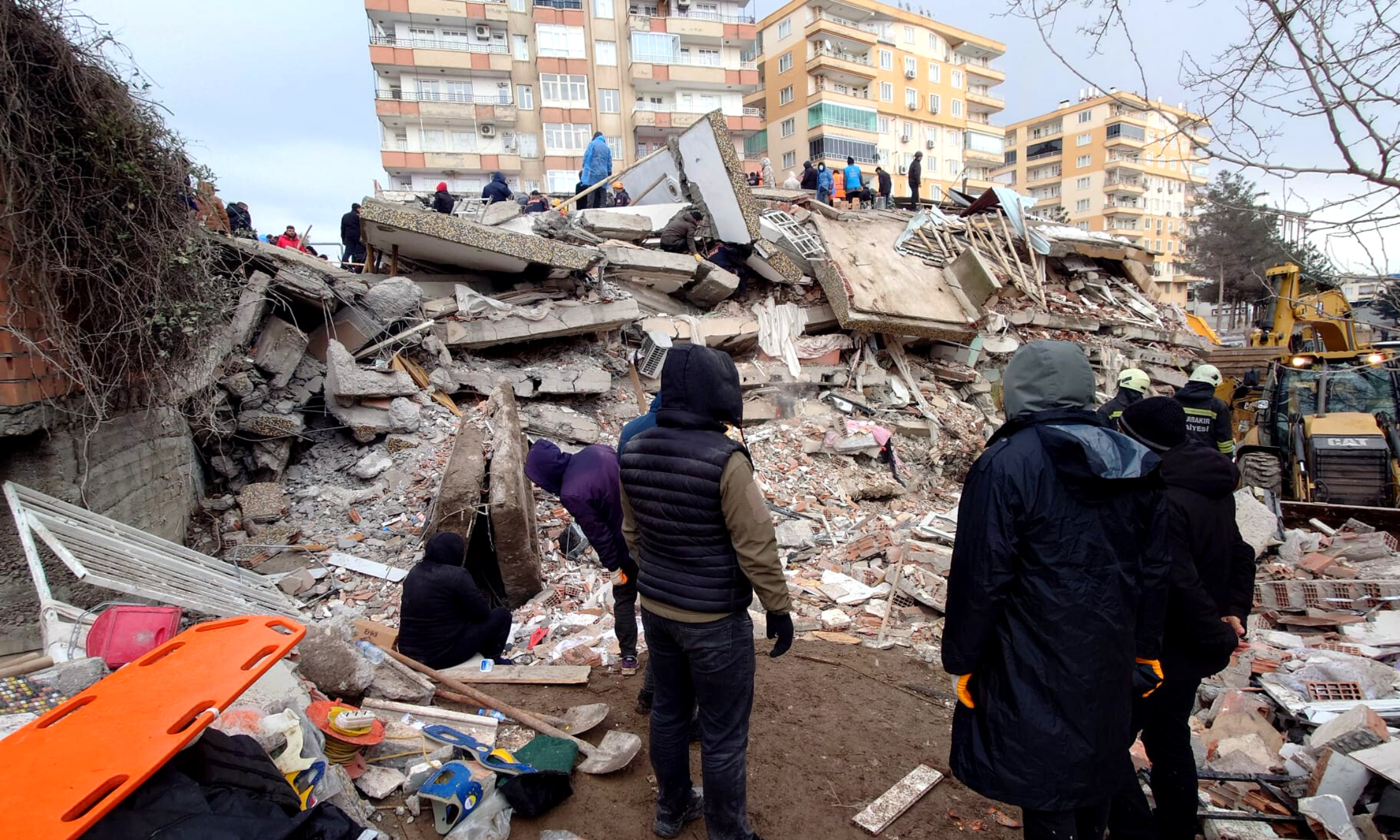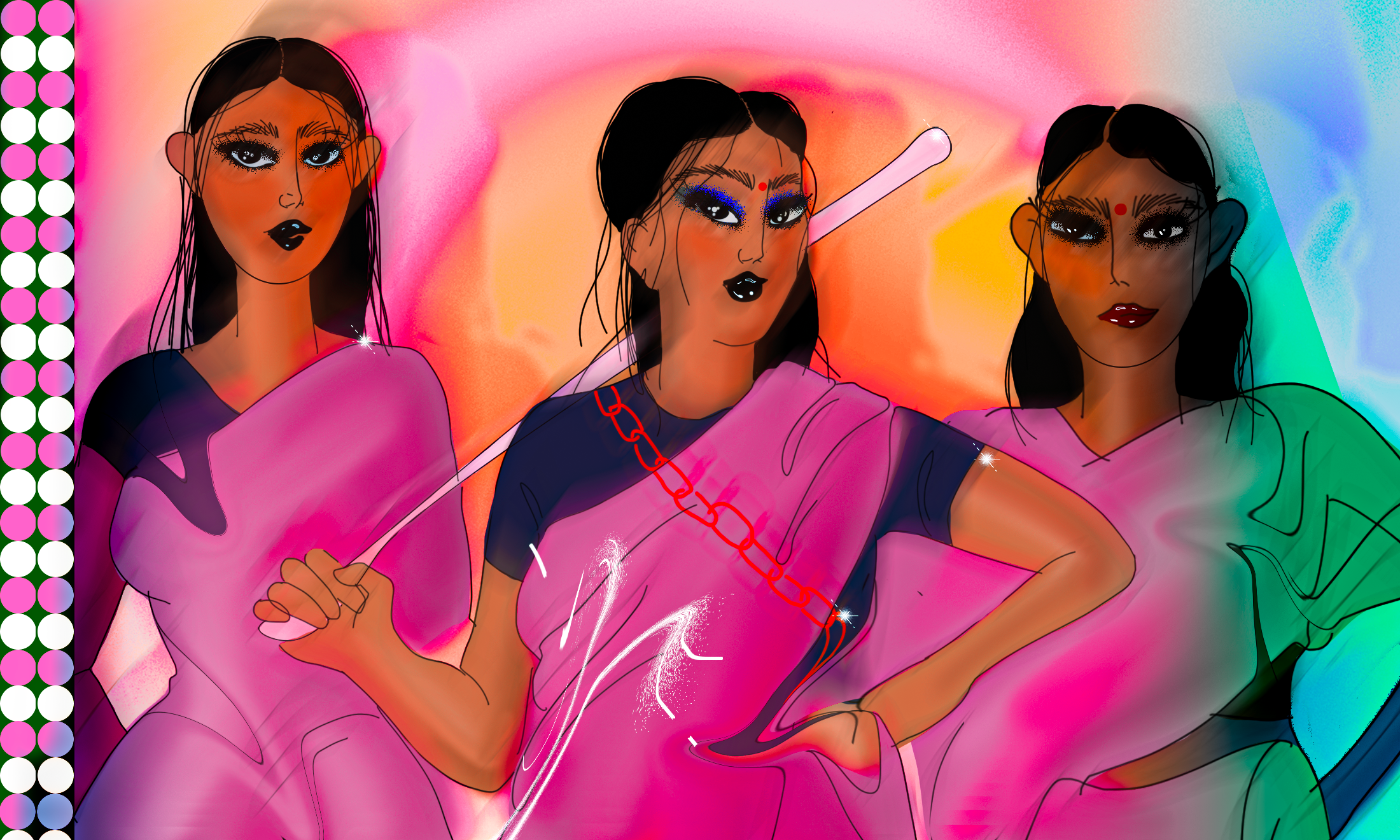Forgetting mustard seeds: a year in the life of a mother during the Pandemic
This photo series follows a mother and her family as they welcome a new child during one of the most testing times in India.
Millo Ankha
01 Sep 2021

Millo Ankha
In mid-July 2020, 32-year-old Joram Anna gave birth to her second child, a healthy girl called Riila, through a caesarean section. One week later, Anna’s home city of Itanagar, the capital complex of northeastern India’s Arunachal Pradesh state, went into lockdown due to Covid-19.
She lives with her husband and children in a rented apartment consisting of two rooms and a hall with a small kitchen and bathroom. The walls of her home are marked with pencil drawings and the doors have stickers of cartoon figures and dinosaurs on them. The balcony overlooks the wavering mountains. Below, the lane that leads from her house is overgrown with hedges.
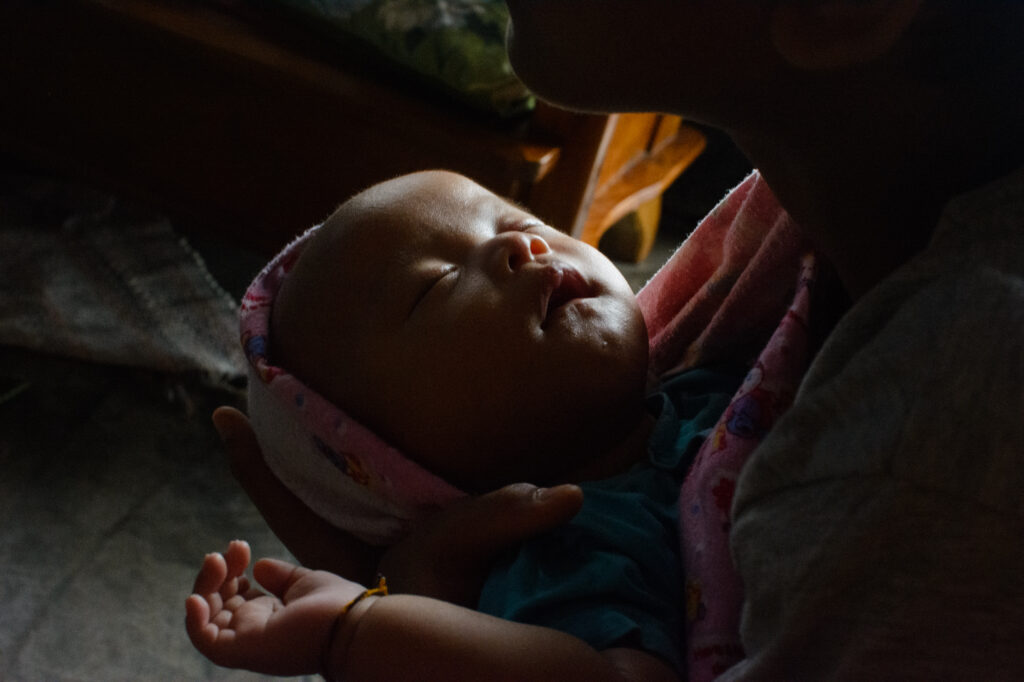
One day, Anna steps out to go to the market on her own, after five long months. She realises on returning that she’s forgotten the exact thing that she went out to buy. “Every time it is Ganga [her husband] who forgets the mustard seeds, and today I forgot them,” Joram Anna tells me, standing at the doorstep, holding a plastic bag filled with new toys and green veggies. “Pillows filled with mustard seeds help in giving good shape to the child’s head and it makes the baby sleep well,” she says.
What does it mean to raise a child in the pandemic?
I remember sitting with my aunt and her twins on their first birthday in Itanagar. As we cut their cake in the aftermath of a mild earthquake in July 2020, my aunt laughed and rocked one of her twins unaffected by the tremor. But this triggered my worry and curiosity – I asked myself what does it mean to give birth in the pandemic?
So, through a journalism grant I received, I approached Anna, who had recently given birth and her husband, my cousin Koj Ganga, with my proposal to explore this more. They agreed to be photographed. Before this, we only met occasionally at family gatherings, and we didn’t really know each other closely.
Starting in July 2020, I followed Anna on her journey through a year of motherhood in Arunachal Pradesh. The easternmost state in India shares its border with Bhutan, China and Myanmar and is home to different ethnic groups. Itanagar, the capital, where the couple lives, is a city spread on hilly terrains with pockets of lush parks.
Over the last 18 months, India has struggled with the force of the pandemic, with official records showing a death toll of more than 432,500 people at the time of writing. With the pandemic restrictions and the remoteness of Arunachal Pradesh, the state suffered from price hikes of essential commodities like fuel and food, and immobility of transport services like cabs, buses and trains.
“The whole experience was horrifying during the time, there was a lot of fear before giving birth,” says Anna, reflecting on her experience of giving birth during the lockdown. “Especially through Facebook and Whatsapp news. Everything was overwhelming – to the point [where] I stopped consuming it.”
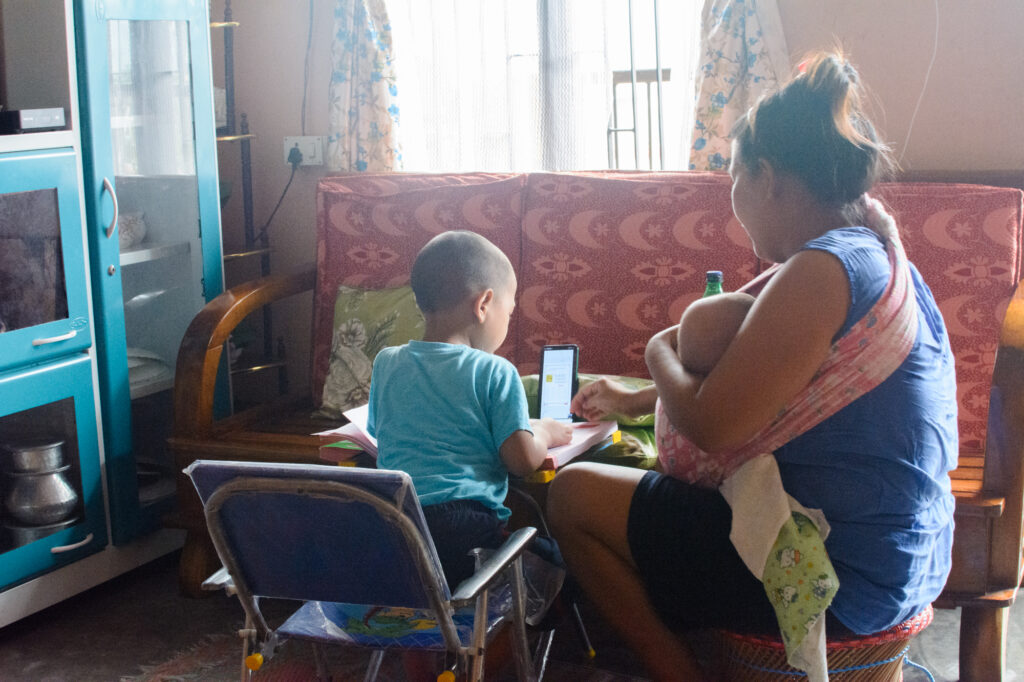
In a temporary contractual post, Anna worked as a lower deck clerk in the Higher Education Department of Arunachal Pradesh. In the sixth month of her pregnancy, she was given two months of maternity leave; a stark difference to the year-long leave those in regular posts are entitled to.
After giving birth to Riila, Anna comes home to uncertainty. Her first child, five-year-old Danyi, is coming to terms with having his baby sister around. With the schools closing and classes moving to online spaces, new challenges were pressing onto Anna’s role as a mother. While she was the constant source of comfort and food for Riila, she also sits with Danyi through his online classes. “At least if the schools were running, it would have given me some relief,” she says.
“I don’t know how I would handle running this house if it wasn’t for Anya”
Anna
As they don’t have a laptop, he attends his classes on her phone. On some days due to the power cuts and a weak network connection, they forgo the sessions. Anya, her six-year-old niece, provides an extra hand to run the house and helps clean, cook and babysit.
“I don’t know how I would handle running this house if it wasn’t for Anya,” she says inspecting Riila’s face closely. “We can’t even find a house help in this situation.”
Koj Ganga, Anna’s husband, is a junior intelligence officer in the Subsidiary Intelligence Bureau. A few years ago he underwent serious brain surgery and is now on medications. While most of the institutions and offices remained shut during Arunachal Pradesh’s lockdown, he didn’t receive any time off work. The couple were awaiting medicines they ordered online, but the extended curfews meant they had to resort to an alternate way of getting them all the way from Guwahati, Assam – 347 km away from Itanagar.

In my successive visits over the next seven months to Anna’s house, the TV switches from cartoon channels to the news of tension at the border and invasive reporting of Bollywood controversies. One late noon, while Riila is fast asleep on Anna’s lap, she scrolls through the social media apps on her phone. In a hushed voice, she tells me about the prices of supplies in the market and the latest political developments in the region. Together, we try to figure out how to activate her internet banking and other online services.
Riila’s nippoh apinh (the first feast after the child is born), scheduled for a Sunday morning, was a subdued affair attended only by close family and well-wishers. With public spaces like parks and churches being shut, Anna’s social outings take a backseat except for occasional visits to primary health care for Riila’s immunisation.
One evening in October 2020, her friend Minam*, who recently became a new mother, visits. Since Minam was incapable of lactating at the time, she asked Anna to wet nurse her three-month-old baby. While feeding Minam’s baby, Anna recalls the overbearing pain caused during the breastfeeding process of her first child’s birth, and how her body transformed with her chest becoming heavier, the stretch marks that remained on her hips and thighs, the tension which developed in her overall posture and gait.
“Will my body ever go back to normal? Will I regain my old shape back?”
The challenges of gendered violence
In November 2020, I dropped by Anna’s house. Post lunch, basking in the soft light through the curtains, the children fell asleep to the slow whirring of the fan. While we were lying down in the bed, in a drowsy voice she told me about the case of a seven-month pregnant woman who was allegedly murdered by her husband in Karsingsa, 40 km from Itanagar, the previous day.
“I can’t even imagine what she must have gone through,” she tells me, holding Riila’s tiny hands with a slight frown on her face.
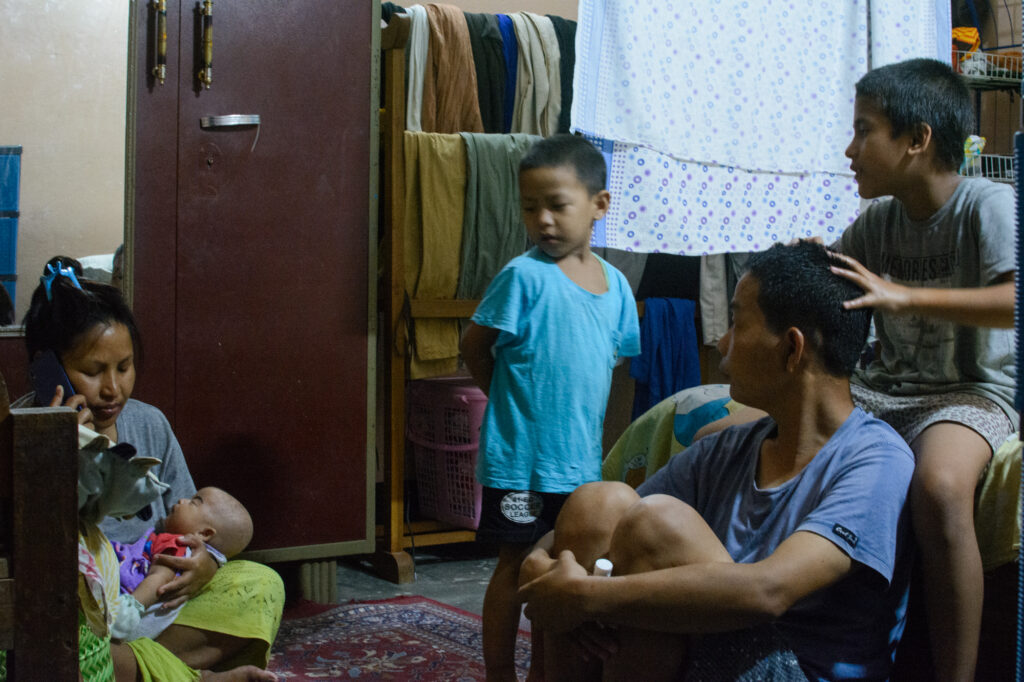
During the pandemic, and as in many other countries worldwide, India saw a steep rise in cases of domestic violence. “The pandemic has increased the risk of perinatal and postnatal anxiety, depression and a rise in the number of domestic violence cases for women,” says a government official of Arunachal Pradesh, who requested anonymity.
The case of the murder jolted the citizens across the state, stirring conversation in all parts of society, shedding light on the challenges women and children of Arunachal Pradesh face. A candlelight march was held in the Itanagar and across the state, with thousands of protesters demanded capital punishment for the accused, a ban on polygamy and checks on corruption.
“The pandemic has increased the risk of perinatal and postnatal anxiety, depression and a rise in the number of domestic violence cases for women”
government official of Arunachal Pradesh
In the same month, Arunachal Pradesh recorded the highest sex ratio in the country with 1,084 females born per 1,000 males, more than the national average of 919 females born per 1000 males. The Chief Minister of the State Pema Khandu tweeted this as “an indicator of high preference for female child and the status of gender equality in Arunachal.“
A higher female sex ratio, says Taw Azu, writer and Principal-in-charge of a Govt. college, who was also present on the walk, reflects the “craze and obsession” of society in Arunachal Pradesh for male children. “In an effort to have male child, many go through multiple pregnancies resulting in numerous births of girl children in each and every family.”
As the vaccines come, so does spring
In January 2021, the state government started a Covid-19 vaccination drive, prioritising healthcare and frontline workers. While initially, pregnant and breastfeeding mothers did not receive vaccinations, policies changed, the state immunisation officer, Dr Dimong Padung, tells gal-dem.
Danyi and Anya have moved up a grade at school, resuming their online classes in May 2021. The cousins have formed a strong bond during their time together in the pandemic. Danyi shows me his latest collection of dinosaur toys; meanwhile, Riila, who recently turned one in July 2021, dons a pink ribbon around her smooth round head. Anna laughs about her new weight loss routine of chasing Riila around the apartment since she learned how to walk. Anna tells me how her child, who was a newborn not so long ago, is outgrowing all her clothes and is quick to learn tricks from Danyi and Anya.
On my last visit to the family in April 2021, the hedges on the sides of their lane were cleared, the balcony turned into a mini garden with sprouts of coriander, mint and cherry tomatoes. The furniture has been rearranged with fresh upholstery and new curtains.
Together in lockdown, over the copious amount of our sweet teas, our guards broke down. This time gave me the chance to develop an honest relationship with my extended family. Somedays I extended myself to help Danyi and Anya with their homework. On other days, listening to Anna in those intimate conversations gave me the comfort and sense of understanding of a mother’s constant and untiring state of tenderness and vulnerability,
I was relieved from the anxieties of the pandemic through our exchange of stories. In the silent presence of the wavering mountains it instilled a sense of hope which was not just necessary, but vital, to navigate through the most uncertain of times.
During our occasional long phone calls as I speak with Anna from my home in Guwahati, she checks in on my well-being and sleep.
“You do you, rest will be taken care of.”
* This name has been changed for anonymity
The research for this article was funded and supported by the Zubaan-Sasakawa Peace Foundation Grant for Journalists from Northeast India 2020-2021.





